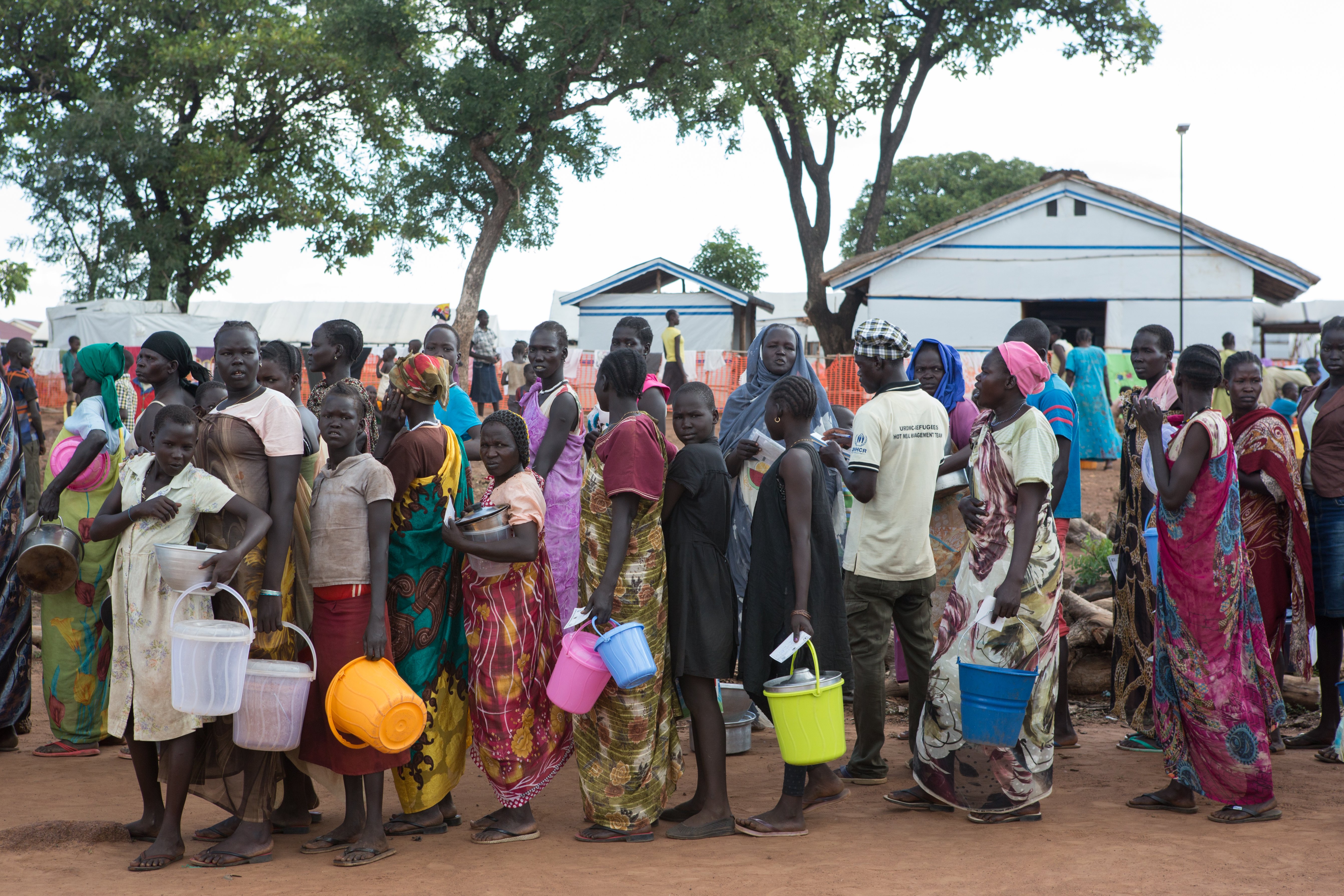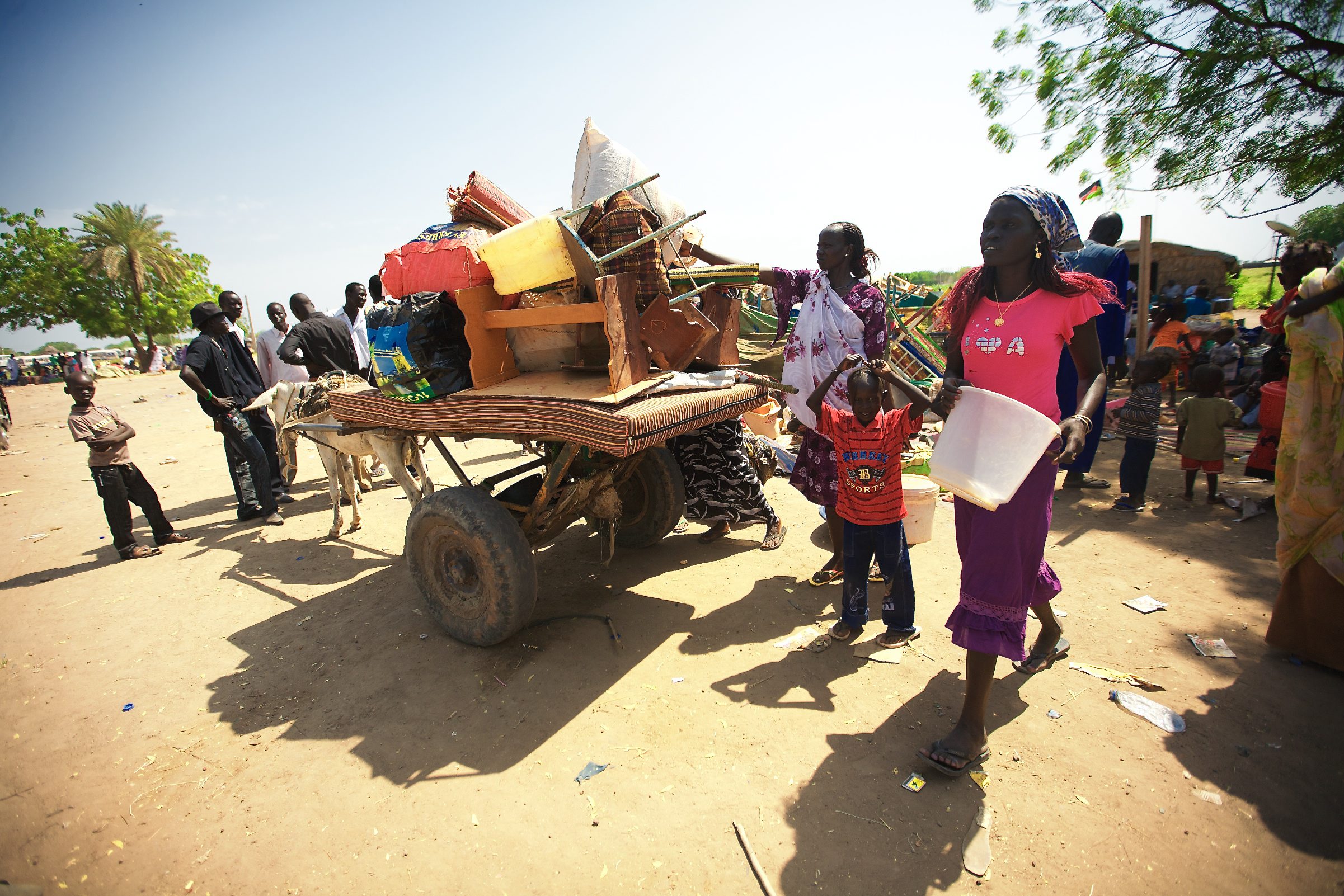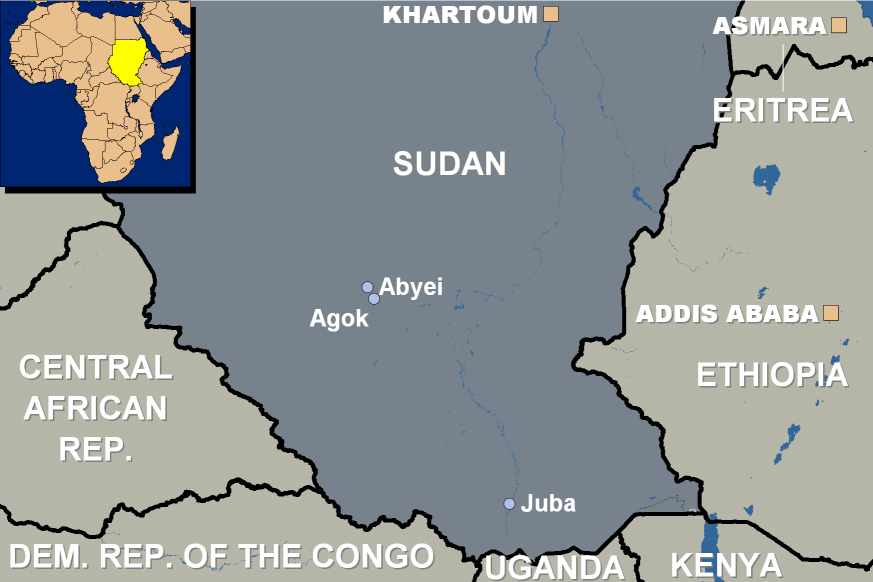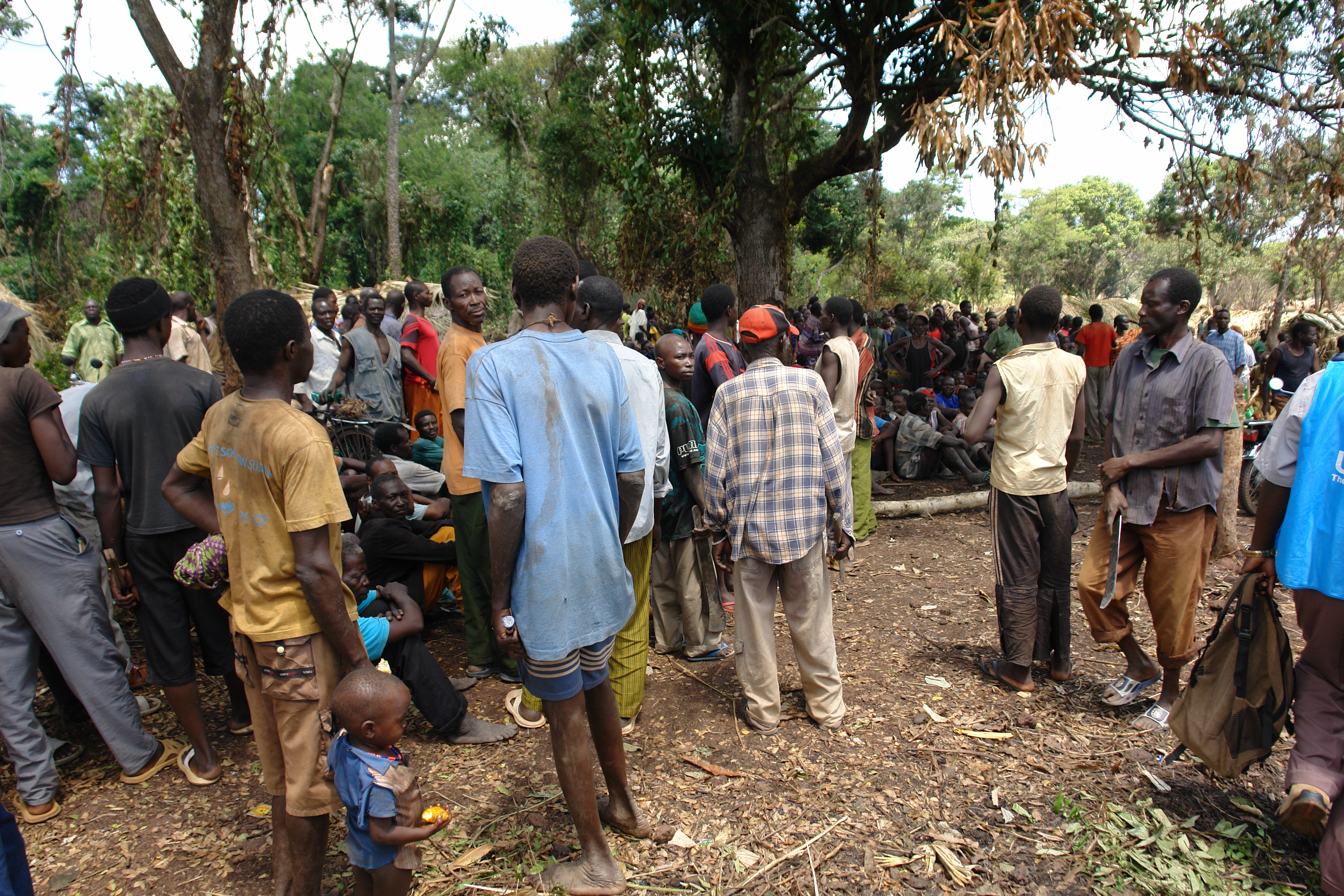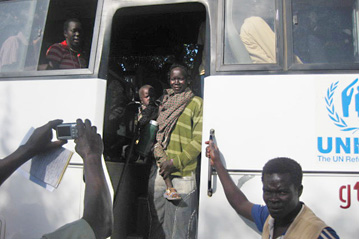South Sudan: Repatriation from Central African Republic complete
South Sudan: Repatriation from Central African Republic complete
The last official repatriation flight from the Central African Republic (CAR) to Nzara in South Sudan took place on Wednesday (11 April), bringing home a group of 31 refugees. Since the voluntary repatriation operation started in February 2006, some 8,400 South Sudanese refugees have returned home on flights organised by UNHCR and the International Organization for Migration (IOM). Another 1,319 returned on their own and received crucial assistance to help them restart their lives, bringing the total of returns facilitated by UNHCR to almost 9,700.
The Central African Republic is the first of six countries neighbouring South Sudan to conclude voluntary repatriation of refugees who had fled a civil war that lasted more than 20 years. The conclusion of the CAR return operation came a day after we announced that the total number of South Sudanese refugees whose repatriation was facilitated by UNHCR had crossed the 50,000 mark since the December 2005. The returns have come from Kenya, the Democratic Republic of the Congo, CAR, Uganda, Ethiopia, Egypt and Libya.
The last group of returnees from CAR to South Sudan were welcomed in Nzara in Western Equatoria State local officials and a cheering crowd entertained by traditional singing and dancing.
UNHCR launched the organised voluntary repatriation in February 2006, only a day after the governments of Sudan and the Central African Republic had signed an agreement with us providing the legal framework for the repatriation. Between April and December 2006, however, flights had to be suspended due to the official closure of the border between the two countries. During this time, some 1,300 refugees returned on their own but received an aid package from humanitarian agencies containing a three-month food ration, seeds, agricultural tools and basic household items.
Most of the Sudanese refugees in the Central African Republic had settled around the village of Mboki in the remote south-east of the country. The refugee camp itself in Mboki was officially established in 1990 and UNHCR and the National Refugee Commission provided protection and assistance. However, refugees living in Bangui, Kaga-Bandoro, Bangassou and other places in CAR also benefited from the repatriation operation as they were flown back to Tambura, Juba, Rumbek, Wau, Nzara, Yambio and other locations in South Sudan.
The Central African Republic hosted up to 36,000 Sudanese refugees at the peak of the influx in the early 1990s. Many of them had returned before the repatriation operation began. Less than 2,000 Sudanese refugees remain in the country. Some of them will likely opt to stay permanently because they have established local bonds or businesses.

